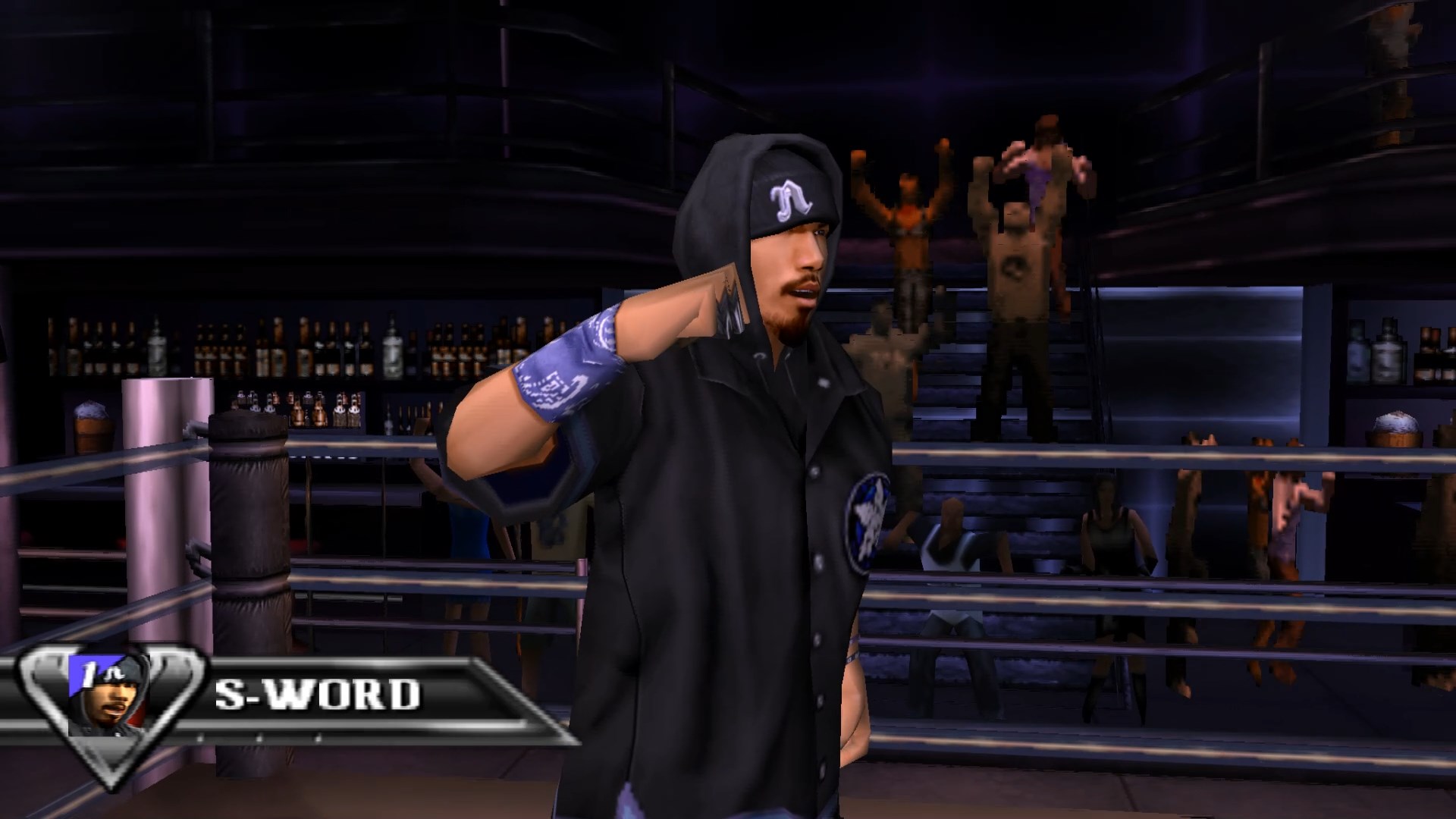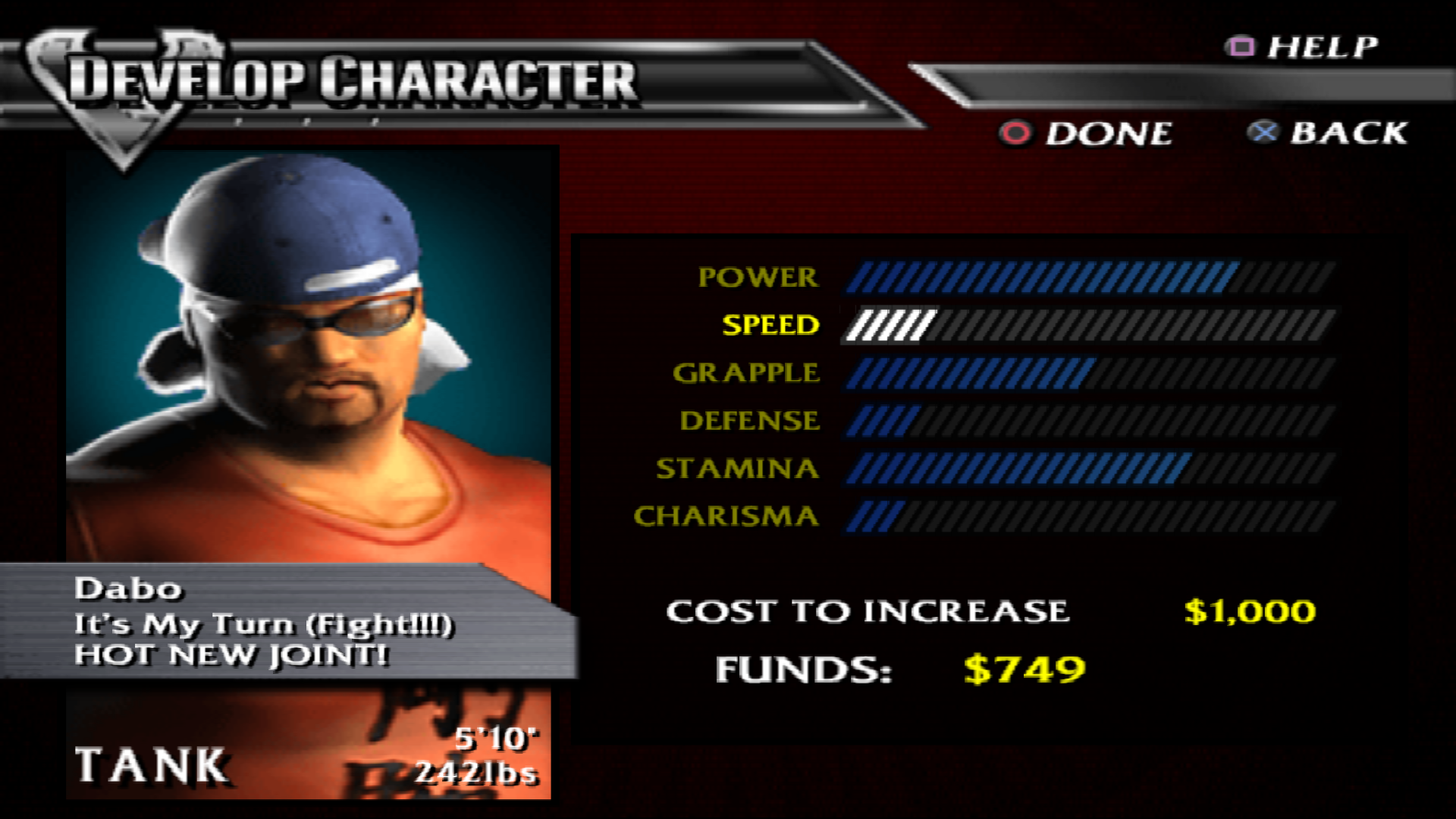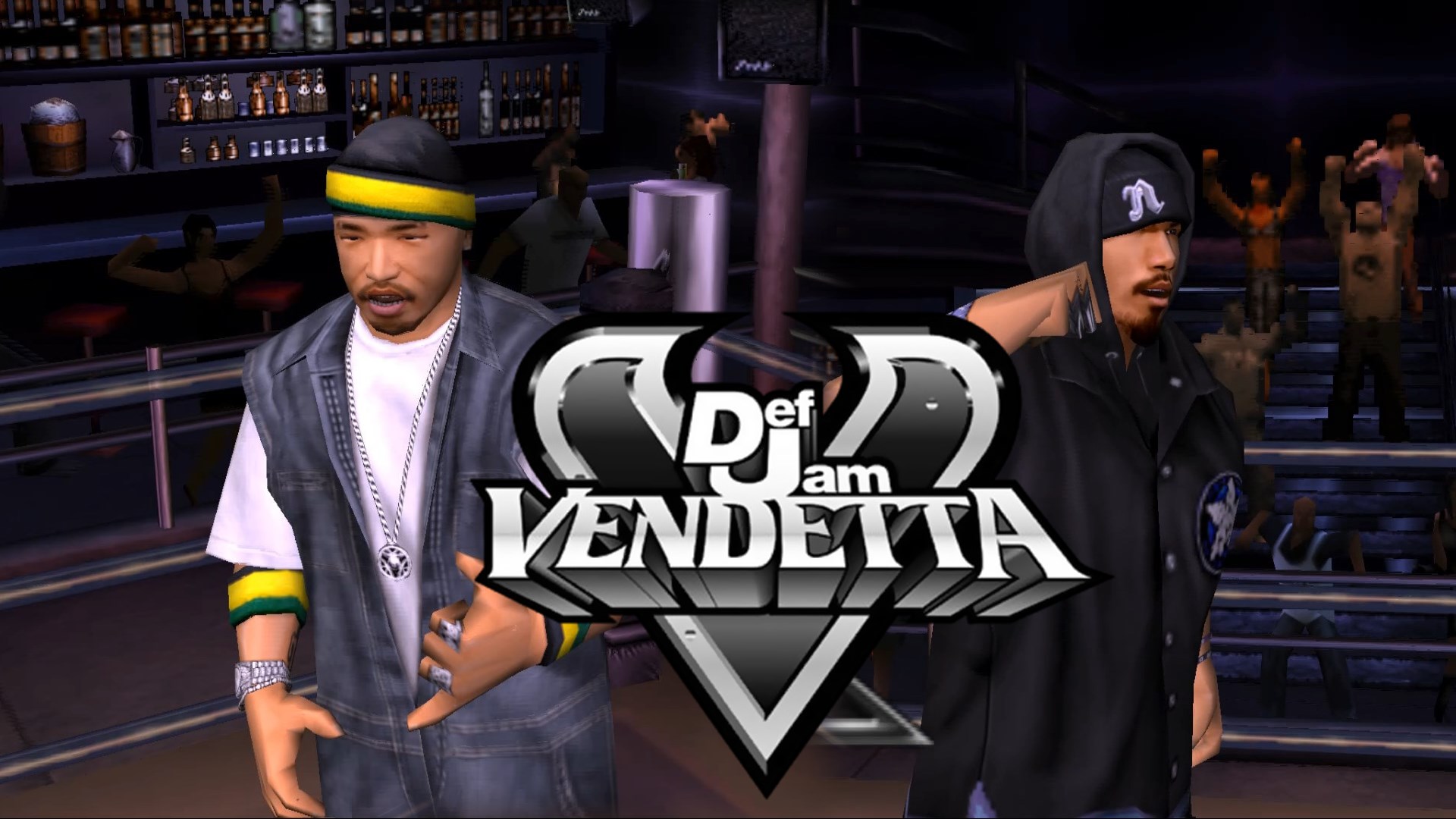Def Jam Vendetta
While playing AEW Fight Forever, I couldn't help but think about the countless hours I spent on Def Jam Vendetta, a wrestling game that helped bridge several gaps between different communities. Both titles were directed by GETA, full name HIdeyuki Iwashita, alongside the often acclaimed (top of the chain) game, WWF No Mercy. While GETA has another notch he can add to his belt of wrestling classics, it was Def Jam Vendetta that proved going against the trend could create entirely new ones out of thin air.
To this day, I wish I could have been in the boardroom meeting when the concept of combining rappers and wrestlers in a video game was brought up. This is added to the list of "boardroom meetings" that Nay wishes to see as it's intriguing when Japanese developers are tasked to whip up some innovative ideas. Looking back at it now, it's amazing how far that concept had gone as rap and wrestling go hand-in-hand like cereal and milk nowadays. It started with John Cena dropping bars every Monday Night Raw and now we have The Acclaimed dropping bars every Wednesday Night Dynamite. It's a fun gimmick and it also allows wrestlers to flex their talents in other ventures.

But we're not talking about wrestlers who happen to moonlight as rappers, we're talking actual rappers in the wrestling ring slugging it out. Rappers were always wrestling fans and you can't hear a Westside Gunn album without him cutting a promo on a record. Honestly, the only ones that I recall being surprised at the combination working were those who didn't follow hip-hop like that. Wrestlers like Razor Ramon greatly influenced many rappers at the time and of the future. Def Jam Vendetta was just a bunch of fanboys who envisioned themselves as "wrestling gods" in a cracked-out "street drama" predating shows like Power and Atlanta.
However, there's another region that has been on the uptick in terms of embracing hip-hop culture and that is Japan. During the 2000s, Japan entered a renaissance that embraced Black culture including hip-hop, fashion, and much more. The hip-hop group, m-flo, is often considered one of the major breakthrough groups to cross over to international stardom, with VERBAL's Teriyaki Boyz being the title theme for The Fast And Furious Tokyo Drift. Artist Pharrell would further collaborate with Teriyaki Boyz' Nigo in creating Billionaire Boys Club and helped bring A Bathing Ape to hip-hop royalty.

So when Def Jam Vendetta was marketed for a Japanese release, Electronic Arts knew that they had an install base already. They just needed artists in Japan to help promote the game. This leads to rappers S-Word and Dabo, the two Japan-exclusive rappers of Def Jam Vendetta. They weren't "additions," but rather they were replacements for Capone and Ghostface Killah respectively. Why these two rappers in particular, I'm not sure, especially when Method Man is in the game. I assume it's less of a "Wu-Tang" thing and more of a "popularity" or license thing?
There isn't much information out there involving S-Word except that he's popular in the Japanese underground and battle rap scene. Dabo on the other hand seems to continue to work in music, being active on Instagram and DJing shows to this day. He was also apparently the first rapper to be signed to Def Jam Japan, which ultimately was the reason behind both of their inclusions in Def Jam Vendetta. Promoting Def Jam Japan was the main purpose, but these aren't just reskinned "Capone" and "Ghostface Killah" models.

AKI went and modeled both rappers, had them do voice lines, and gave them each a unique move set. Their fighting style is more rooted in exaggerated "manga-style" beatdown with a mix of "strong style" puroresu that appears less wrestling and more of a street fight. I could see AKI using some of their moves, especially their blazing moves, as an influence for what would become Def Jam Fight For NY, but it's all speculation.
Def Jam Vendetta remains one of the best wrestling games for wrestling fans as well as non-wrestling fans who just wanted to play as their favorite rappers. It combined the veterans with the newcomers and it's unfortunate that Fight For NY took a more simplified "brawler/fighting game" approach. Ironically, it would be for this reason that the sequel would be more competitive than its prequel as the "easy to pick up and play" style combined with the groundwork that GETA left behind in Vendetta. While Def Jam Icon may have tried its best to tarnish its legacy, it has been a pivotal moment not just for wrestling games, but for hip-hop culture around the world.

Also in case you were wondering why AKI corporation links to "syn Sophia," that's what the company goes by nowadays. The reason why it was a big deal for GETA to get involved in AEW Fight Forever was that when wrestling fans think of "AKI Corporation," they are talking about him. Nowadays, the company has done a complete 180, although it doesn't shy away from its history. At least the future is looking bright for games like this.

